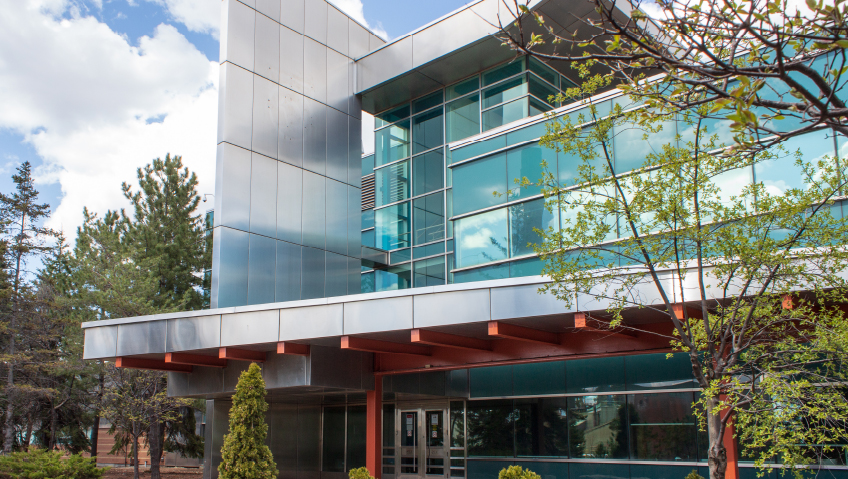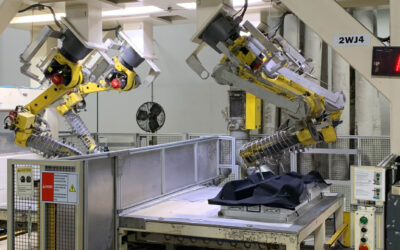XPS Expert Process Solutions provides metallurgical consulting, technology, and testing services to the global mining industry. The origin of the group dates back to the 1940s, starting in Sudbury, Ontario as the Falconbridge Technology Centre (FTC), an internal department of Falconbridge Ltd. that supported the nickel mining operation. The centre developed over the decades into a full-fledged metallurgical testing operation. Following the merger of Falconbridge and Noranda in 2005, the Falconbridge Technology Centre combined the expertise of its sister organization, the Noranda Research Centre, adding further expertise and capability in process support and development.
The 2006 acquisition of Falconbridge by the Swiss mining company Xstrata resulted in a new mandate for FTC. The group was re-organized as XPS, a standalone commercial enterprise offering expertise to both internal and external corporate clients. This mandate was confirmed and continued upon the 2013 merger of Xstrata with Glencore plc.
XPS has been successful in making the transition to a fully self-supporting commercial entity and today offers state-of-the-art services to Glencore and the worldwide mining industry.
XPS has become a leader in innovative technology for the mining industry, offering services in a number of areas. The company is organized into seven fields of expertise: Materials Technology, Process Control and Automation, Process Modelling & Simulation Group, Mineral Processing, Mineralogy, Pyrometallurgy and Hydrometallurgy. The Materials Technology Group provides a range of services to operations that includes on-site inspection, non-destructive testing, corrosion and failure analysis, as well as materials design and selection. These tasks are vital to the assurance of safe and uninterrupted operation of key metallurgical processes.
Manager Dan Falcioni describes the group’s role in XPS as one of support, with materials engineering expertise in areas like corrosion, wear, and damage analysis specific to the mining industry (i.e. mines, smelters, acid plants).
A large proportion of the group’s work consists of on-site support and coordination with client maintenance and shutdown crews, allowing operations to maximize or improve the reliability and service life of equipment. Customers’ situations are unique, so the group has often applied innovative technology as part of solution packages. For example, the Materials group has been an industry leader in the adoption of drone technology to assist in acid plant inspections, allowing the safe, rapid and successful inspection of equipment in difficult-to-access locations without requiring the potentially hazardous ingress of personnel.
The team brings with it a wealth of technical experience and expertise from multiple operations, backed up by a comprehensive range of technical support and diagnostic services from the XPS Sudbury facility. The group also brings to sites a good knowledge of best safety practices, allowing them to work constructively at remote operations to maintain or elevate workplace standards.
The Process Control and Automation Group under the leadership of the Group Manager Nicolas Lazare combines skills in advanced control with both data handling technologies and artificial intelligence (AI) to build new generations of controls and decision-making systems. The wide range of applications for this technology includes areas as diverse as energy reduction, mine ventilation, control and optimization of unit processes (smelters, converters, grinding mills, thickeners, et cetera), protection of equipment from physical damage, or prescriptive maintenance.
The Process Control and Automation group works closely with operations, including some embedded roles in plant support. One high-potential area of development that promises to expand the reach of the group is remote loop monitoring, enabled by the continuing advances in digital technology. The group is capable of creating “virtual control rooms” at the Sudbury site, allowing process loops to be continuously and remotely monitored and tuned, with direct contact with the site team as required. This allows the Sudbury site to offer advanced control services to remote operations anywhere in the world, many or most of which could not afford to have embedded personnel dedicated to this task.
The XPS Process Modelling & Simulation Group led by Tanai Marin, Superintendent provides unique expertise and the capability of combining different modelling techniques with an in-house interface development to link several platforms; for example, embedding multiphase multicomponent non-ideal thermodynamic modelling into Multiphysics simulations or high-level process simulation for digital twin plant simulation. The Mineral Processing Group under the leadership of Tony Deng, Superintendent of Mineral Processing applies the accumulated experience of decades of flowsheet development to the design and support of mineral processing operations. From its origin as an operational support group to Falconbridge and Noranda base metals operations, the group has now diversified into precious metals (gold, silver, PGE), rare earths, lithium and industrial minerals, offering a wide range of services to the global mining community. Services range from metallurgical testing to flowsheet development and piloting, and include activities such as site support, plant audits, start-up support, desktop studies and metals accounting.
The Mineral Science Group under Group Superintendent Elizabeth Whiteman provides a team of Geoscientists for mineralogical diagnostics and support. The facility offers advanced mineralogical services such as QEMSCAN and TESCAN quantitative mineralogy, XRD analysis and laser ablation (LA-ICPMS) backed up by a variety of laboratory sizing and pre-concentration methodologies in order to provide comprehensive analyses and process development services. The application of these methods is diverse, ranging from direct plant support or support to in-house metallurgical development programs to theoretical extrapolations of metallurgical performance for exploration projects based upon the proportion of pay metals distributed into the various mineral components of the ore. The Mineral Science group provides and develops state-of-the-art techniques and custom solutions for sample preparation and analysis, allowing them to extend their activities into a wide range of minerals and commodities (soluble salts, coal, graphite and other exceptionally soft materials such as talc). The group has also engaged in some advanced environmental applications such as the origins of dust collected in sampling filters, fibre counts, and other similar applications.
Manager of Hydrometallurgy, Don Shane, comments that today’s clients are strongly focused upon issues falling into the categories of Environmental, Social and Governance (ESG). Production activities need to achieve their objectives in a safe and environmentally responsible manner. The technologies for hydrometallurgy developed with clients have a long-term outlook in mind, which helps to ensure those clients are preparing for sustainable business many years into the future while meeting the needs of today.
Mika Muinonen, Director of Business Development and Pyrometallurgy, believes that this is an exciting time to be in the metals business. Many of XPS’ clients are engaged in the production of vital commodities – copper, nickel, cobalt, lithium, et cetera – that represent the key to processes like electrification and avoidance of greenhouse gas emissions; however, industry professionals are observing a paucity of new projects to replace resource depletion or accommodate increased demand.
This is especially true with respect to nickel and copper. XPS has conducted several projects using a 350 kW DC electric furnace to process strategic metals such as chromite ore from the Ring of Fire deposit and has extensive piloting capabilities for high temperature processes including fluid bed roasting and thermal treatment. The XPS team foresees a lot of project development required for green metals, with the group in a good position to support that development. This includes projects that involve metals recycling. XPS is already engaged in a number of Glencore projects that involve integration of recycled metal streams into existing operations.
Muinonen adds that the experienced workforce at XPS has a lot to offer for the day-to-day operations. By the nature of the business, XPS personnel accumulate a great deal of exposure to diverse operational environments spanning a number of locations, commodities, and companies. “XPS has great people from top to bottom and is growing in a measured way, but the continual attraction of great people to the company remains a critical focus,” he says. “The idea is to attract a younger generation to the lucrative, exciting, and rewarding careers that mining can offer.”
XPS, like all businesses, has felt the effects of the COVID-19 pandemic; fortunately, though, the rigorous environmental safety measures already prevalent in the mining industry at large served it well in keeping its workforce protected. The ingrained culture of safety at XPS has allowed the group to rapidly adapt to changes in daily operations and establish robust protocols to control the spread of the virus. Due to the restrictions in travel, some onsite support activities have had to be postponed or cancelled; however, the company looks forward to the end of the pandemic as it plans to re-establish visits to client’s sites. “As XPS is an international business, its experts regularly visit clients on every single continent… with the possible exception of Antarctica,” Muinonen jokes.
Going forward XPS will look to market its services more broadly as it continues to develop an international client base. “We want people to know we’re here,” Muinonen underlines, “and the company will look to enact a campaign based especially on its abilities in the copper market. XPS has a lot of experience in copper and has identified this as a key potential growth area.”
Vice President Pascal Coursol adds, “The XPS workforce adapts to the needs of clients. Our services include strategic project support, enabling technology development, continuous improvements and emergency client assistance during times of trouble such as plant stoppage, loss in recoveries, or an environment, health, and safety (EHS) incident. We have the right skills at hand and we are constantly bringing new talents on board to better serve our clients.”













